Impact Clean Power Technology, riding the EV wave
By Luke Willetts - 13th February 2024
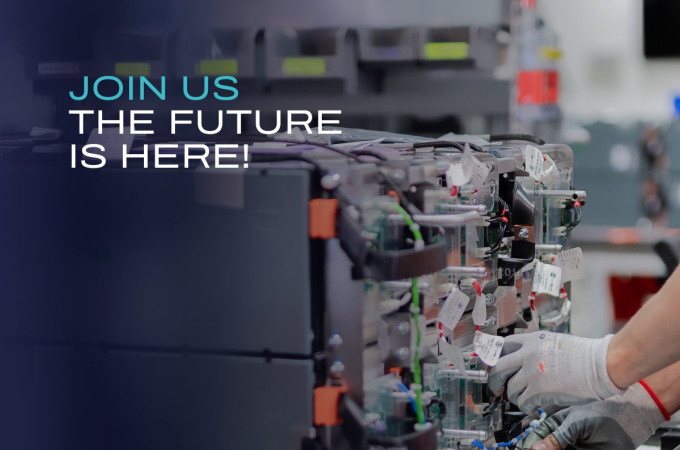
ICPT has experienced tremendous growth over the last several years
Poland – As the Commercial Vehicle (CV) industry transitions to electric, Polish battery manufacturer, Impact Clean Power Technology SA (ICPT) of Warsaw, plans to capitalise on this wave. Having moved recently into its new Gigafactory (“GigafactoryX”) in the suburbs of Warsaw, T&BB thought it was time to take a deeper look into this emerging European CV battery manufacturer as it begins to ramp up production in 2024.
ICPT perhaps is best described as a developer of energy storage systems for a range of heavy-duty mobile applications, including buses, trams, trolleybuses and industrial vehicles and has to date supplied customers predominantly located in Europe, New Zealand and the USA. Current and past clients include Solaris, Autosan, Temsa, Kiepe Electric, Phoenix Motorcars, and the ‘Dancer Bus’ by Vėjo Projektai UAB. Last year, ICPT signed a major battery supply agreement with Alexander Dennis (ADL).
In January this year, T&BB interviewed co-founder and Vice President, Bartek Kras, to get a sense of the past, present and future of this exciting, modern, technology-focussed entity as it looks to expand both its scale of operations as well as its customer portfolio in Poland and into foreign markets.
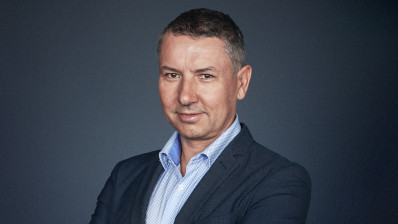
Bartek Kras, Vice President of Impact Clean Power Technology
Business Model
With a fleet of more than 3,000 buses (using ICPT’s batteries) in some 30+ active countries (mostly in Europe), the company has maintained an impressive growth trajectory. In terms of actual production, it does not manufacture cells; its expertise is in the designs and assembly of the battery packs and the Battery Management Software (BMS) (and hardware) technology. This, according to Kras, is because it has been and is very difficult to make money on manufacturing battery cells, as well as the fact that cell technology itself has a habit of changing significantly every two years. A major benefit of not focussing on battery cell manufacture, Kras stated, means that the company is both “cell and technology-agnostic” and that ICPT is able to manufacture a vast array of LTO, LFP and NMC battery packs. With a database of thousands of battery chemistries from more than 170 different cell suppliers, Kras continued, the packs are constantly being developed and updated. The responsibility of collecting cell samples and keeping up to date with the cell technology falls on the shoulders of the ICPT cell validation team.
Currently, the company is using its 5th-generation BMS technology and its 10th-generation batteries, scheduled to be launched (serial production) in February 2024. Kras confirmed that customers want flexibility in terms of pack formation and performance. The BMS technology is key to managing this performance, hence the significance of developing this software in-house. The customisable nature of the battery, in terms of its pack modification and performance, is what Kras sees as ICPT's unique selling point.
The History of ICPT
Winding back the clock, 18 years ago Impact Clean Power Technology was founded initially as an electric vehicle manufacturer. Over the years, ICPT conducted numerous projects for various OEMs, developing lithium-ion batteries. In 2009, the company made the decision to focus exclusively on battery technology. The first major supply contract was with the now defunct, UK-based Smith Electric Vehicle company, supplying heavy-duty lithium-ion battery packs for its 8.5-tonne electric truck. More than 450 trucks - mainly for the U.S. market - were assembled using ICPTs battery packs before the company went into liquidation. Whilst in 2011, it was too early for the electric truck market, ICPT was left with a very mature technology and importantly, it owned its own intellectual property (IP) rights.
Fortunately, Polish bus OEM Solaris was in the midst of building an electric bus in 2012. The timing was impeccable as ICPT had a completely validated heavy-duty battery pack system, so it was able to make the first prototype battery (multipaneled connected) pack system for Solaris very quickly. In 2012, ICPT decided to focus on the electric bus market, leaving the passenger segment entirely.
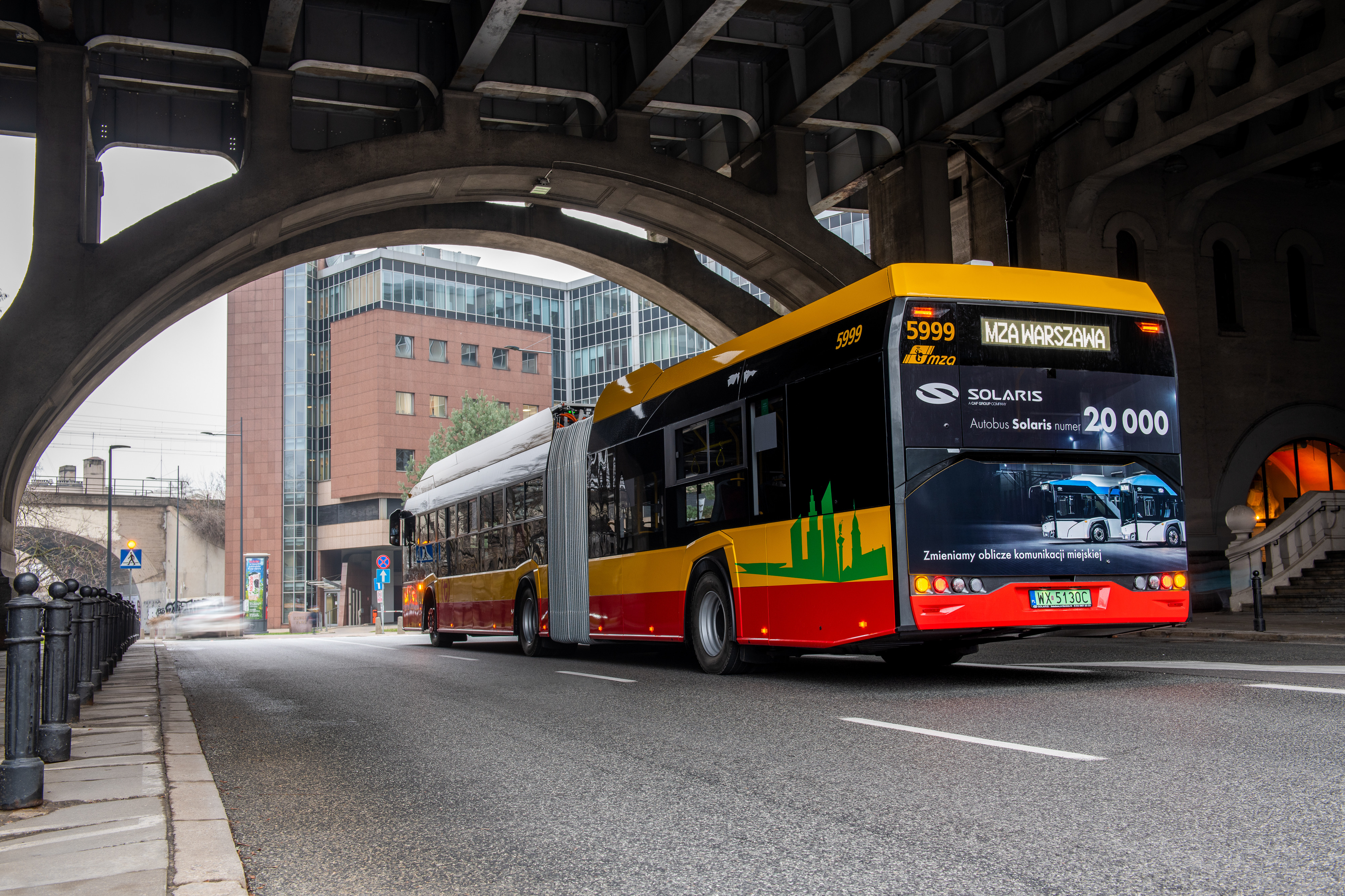
Solaris EV Bus with ICPT batteries
Investments / Manufacturing
Since 2022, ICPT has been majority-owned by the Grenovia Group (a large Polish industrial group) and has been listed on the Warsaw Stock Exchange. Since then, the company has been investing some USD 35 million in the construction of a new 16,000 sqm battery pack manufacturing facility in Pruszków, near Warsaw, which will see its official inauguration in June this year. Kras said the company was in the process of moving into the facility since the start of the new year and that the start of production was scheduled for March 2024. The new Giga facility will increase the company’s annual production capacity to 5 GWh by 2027. Before moving into this new facility, the company was renting a factory in Warsaw.
GigafactoryX houses offices, a battery R&D centre and of course fully automated battery pack manufacturing lines. Kras said that it is important to integrate research and development activities with manufacturing, to scale up production capacities.
The factory is designed to produce batteries with a range of different chemistries: lithium-titanate-oxide (LTO), lithium iron phosphate (LFP), and nickel manganese cobalt (NMC). The production lines are all to be powered using solar energy, while half of the raw materials used in battery assembly will be sustainably sourced. (Teamtechnik Maschinen und Anlagen GmbH was responsible for the tooling at the facility).
.png)
GigafactoryX (rendering)
Supply Agreements
Recently, the company won a major contract with Scottish bus builder, Alexander Dennis (ADL), which late last year launched its next-generation electric Enviro400EV double-decker and Enviro100EV single-decker electric buses, to be offered exclusively in the UK and Ireland. Series production has begun in Lambert, Scotland, with the first deliveries set for Q1 2024. The NMC lithium-ion battery (LFP) system is being provided by Impact. These batteries on the Enviro400EV double-deck bus (either 354 kWh or 472 kWh) are mounted on the chassis, providing a range of 313 kilometres (195 miles) or 418 kilometres (260 miles) respectively, on a single charge. The e-bus has the optional capability of roof-mounted charging rails for pantograph charging.
On the Enviro100EV single-decker, options are for either a 236 kWh or 354 kWh battery configuration that provides either 305 km (195 miles) or 458 km (285) on a single charge. In terms of charging capabilities, the bus is fitted with dual-sided CCS2 DC charging at up to 150 kW and optional roof-mounted charging rails for 300kW pantograph charging. Both these vehicles come with an eight-year warranty on the battery as standard.
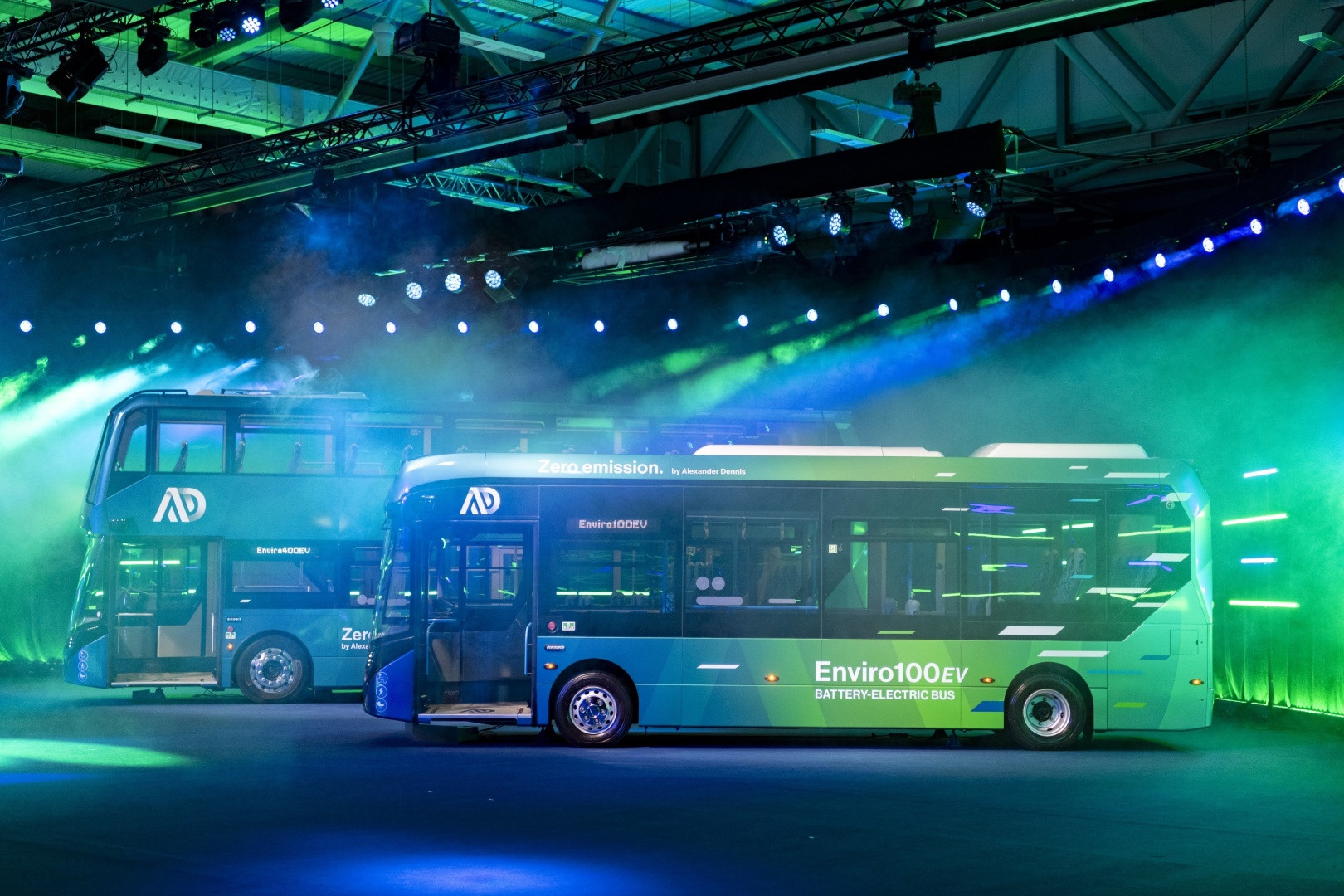
New ADL Enviro range with ICPT batteries
Speaking about this project, Kras said: "In response to our partner Alexander Dennis's expectations, we have developed and delivered a forward-looking battery system based on the new generation of lithium-ion NMC cells. The battery dimensions allowed for their placement within the bus in a way that, for example, increased the overall passenger capacity of the Enviro400EV vehicle by 19%. Furthermore, our battery has been designed to be easily modified over time at both the package and module level, as well as individual cells. In the rapidly evolving battery technology market, we provide users with the ability to modify and incorporate newer technologies throughout the vehicle's entire lifespan."
Furthermore, the company has extended its supply agreement with Solaris from 2024 up until 2027. ICPT will mainly be offering the next-generation HE 100 batteries, which feature a significantly higher energy density and power output, whilst considerably lighter and more compact than previous generations. All of these batteries will be manufactured at GigafactoryX.
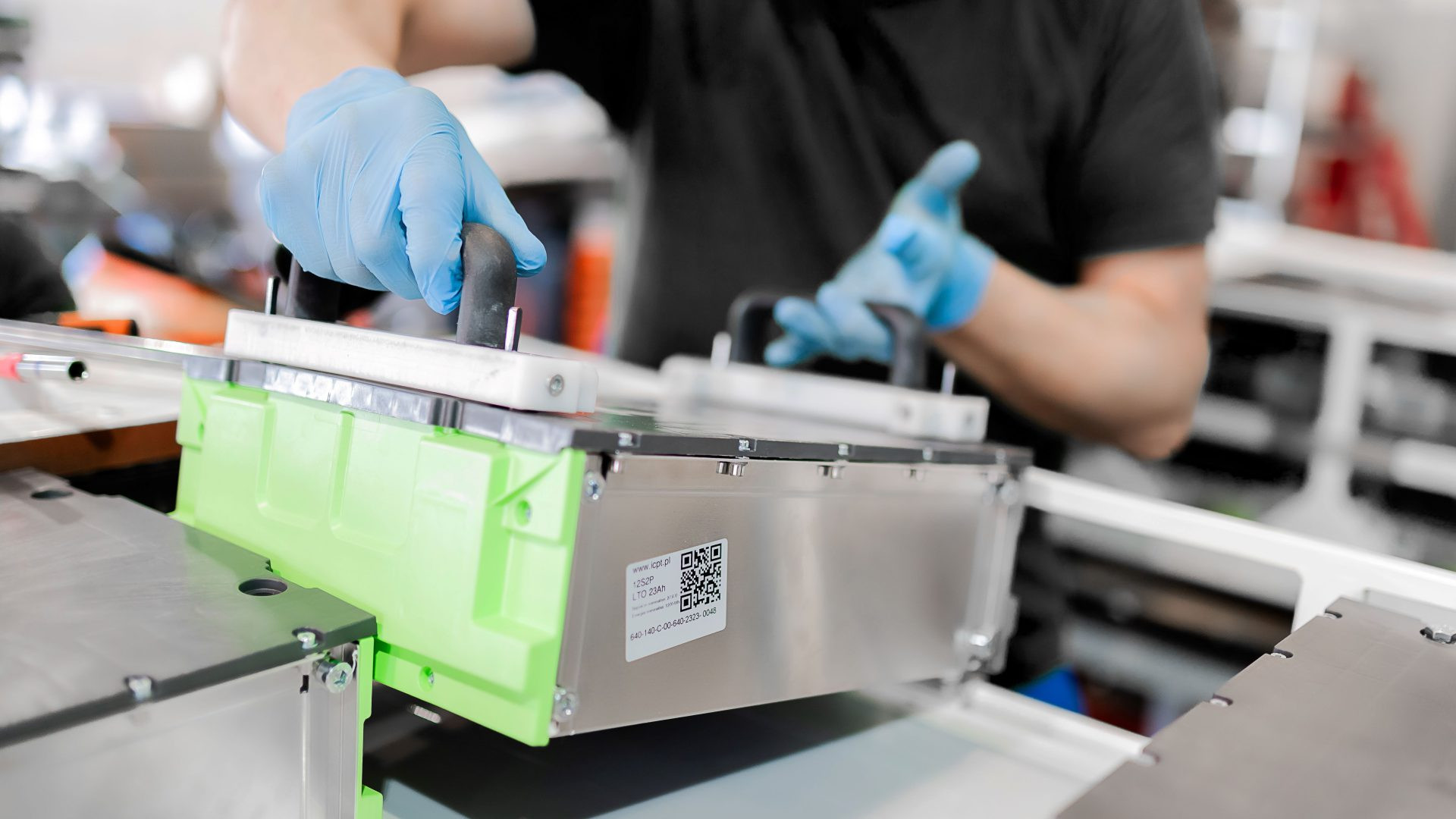
HE 100 batteries
Strategic Partnerships / New Ventures
in partnership with Toshiba Corporation and fellow Japanese firm, ITOCHU Corporation, ICPT is developing a Hydrogen Fuel Cell (HFC) system dedicated to heavy-duty transportation. Toshiba is tasked with designing and developing the ESS’s polymer electrolyte hydrogen fuel cell stack, which reportedly has outstanding durability and stability. Impact, which is developing everything around the stack, has begun testing the HFC for bus application. The PM fuel cell is aiming for an operational use of 100,000 hours. Production is planned for 2026 or 2027.
Commenting on this project, Kras said:
We already have more than 10 years of experience in providing hydrogen vehicle solutions around the world. We are looking at hydrogen as an energy carrier of the near future. To make it happen, hydrogen must be produced by electrolysers from renewable sources and the whole economy must be switched to hydrogen-based green energy production and a support system. This means switching from natural gas to hydrogen, and it seems it will be a 10–15 years process.
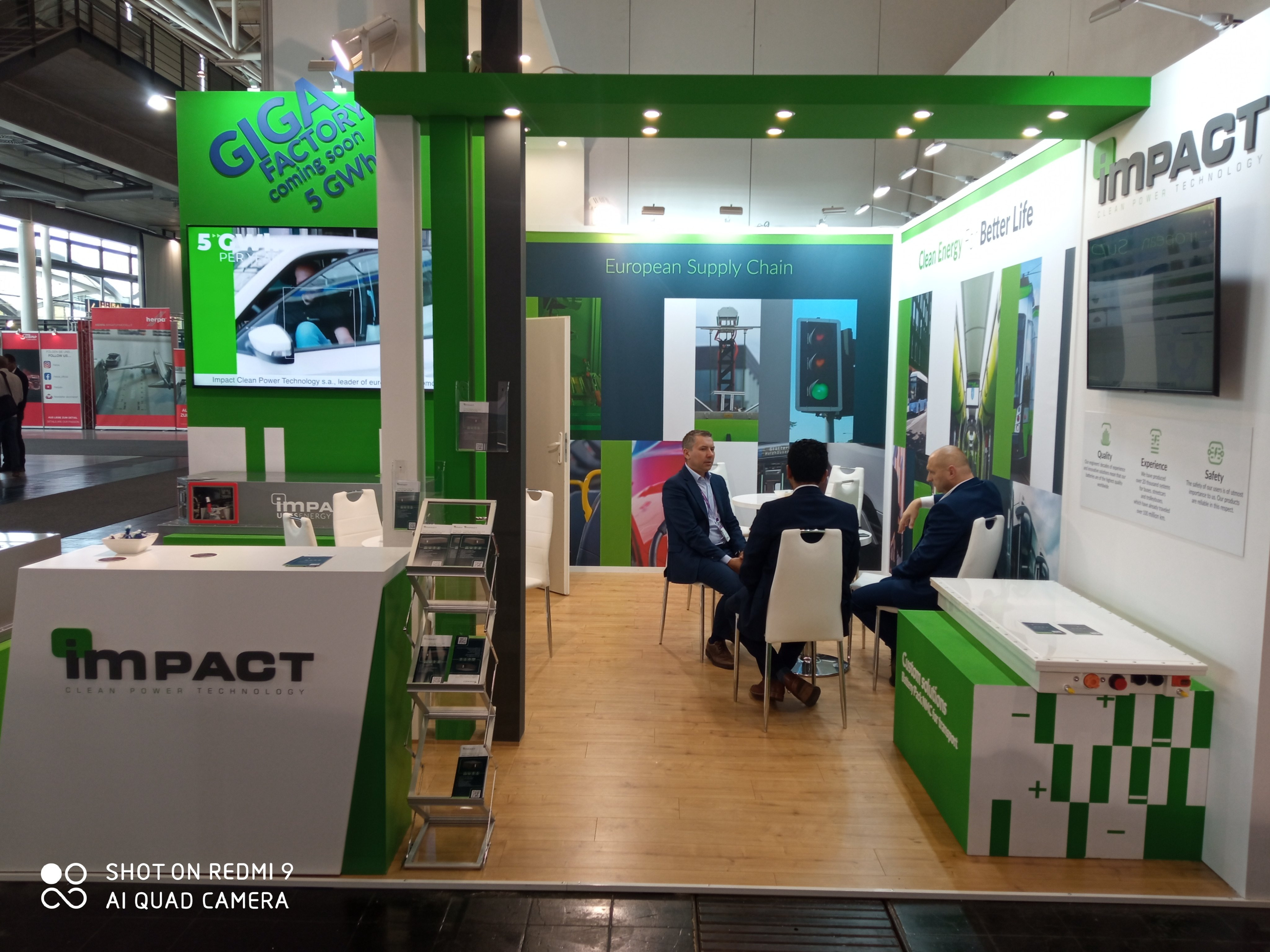
ICPT stand at the IAA
Battery Recycling and Sustainability
Throughout the last few years, Kras said he has spoken of the importance of building an ecosystem of energy suppliers, investors, recycling and manufacturing capabilities to develop a sustainable value chain capable of producing products at scale. Kras happens to be in charge of the company’s Environmental, Social and Governance (ESG*) policy. This encompasses environmental, sustainability, carbon footprints and lifelong assessments with the European battery directive requiring by law a minimum threshold of battery recycling.
A consortium comprised of Solaris, ICPT and TAURON Polska Energia, has implemented a project titled “Second Life ESS” to create a prototype system to store electric energy based on retired bus batteries. The project, which is being co-financed by the National Centre for Research and Development in Poland, aims to give the batteries that drop below 80% of their original capability, a second life through electrical energy storage in stationary applications. With help from its partners, this has been a key milestone in Impact’s sustainability project.
In terms of tracking the cobalt used in its batteries, the firm is implementing a battery passport in 2024. This will house all the key battery data in terms of the supply chain, including the volume of CO2 produced in the production of the battery pack and cells. External companies will then audit this process and conduct independent reports. This is expected to help provide supply chain transparency.
*An ESG rating measures a company's resilience to long-term environmental, social, and governance risks. Issues such as energy efficiency, worker safety, and board independence certainly have financial implications, but it is often underrated during traditional financial reviews.



